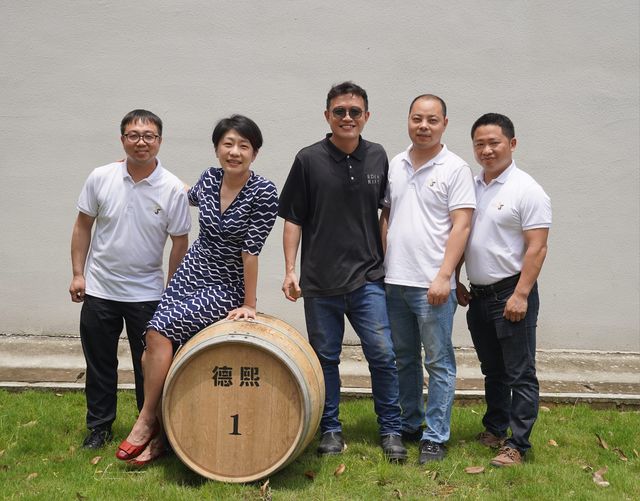They say the longer you wait for something, the more you appreciate it.
The Grace Vineyard team seemed quite appreciative last weekend after barreling its first whisky in China, the latest step in a grain-based mission seeded over a dozen years ago.
“Finally, the first whisky,” posted CEO Judy Chan on social media on Sunday.
That special drop was made at Grace’s Fujian-based Dexi distillery, bought nearly five years ago.
Grace, founded in 1997 in Shanxi’s Taigu area, and with a winery in nearby Ningxia, is arguably the biggest wine success story in China over the past 20 years. With the distillery, it aims to diversify both its portfolio and reach.
“Last year, we acquired a new whisky and gin production line,” Chan wrote in her annual report for 2019, adding that it would boost the product line and help open a new market, Fujian, though she also noted the difficult times.
“The management is working around the clock to make sure we stay on schedule. As I’m writing this statement, we are still in the middle of the coronavirus (COVID-19) outbreak.”
First Barrel
Fast forward three years, and with the zero-COVID era in the rearview mirror, the project has now taken a crucial step.
Grace winemaker Lee Yeanyean also posted on social media about this first barrel, done with whisky consultant Mike Nicolson on hand: “Exciting moments when we can get fruits, balance and complexity in flavors!”
Lee told me has learned a great deal about whisky the past few years.
“Winemaking is more about terroir while whisky is more about controlling processes,” he said. “For distilling, controlling for factors such as malt, wort clarity, temperature and so on can be done much quicker.”
“We are just starting with these baby steps,” Lee added. “There are many more before this becomes a finished whisky.”
Growth market
Grace is not alone is pursuing made-in-China whisky. Major local and global spirits players like Luzhou Laojiao, Yanghe, Pernod Ricard and Diageo are making their own moves, in sites as distant as Sichuan, Yunnan and Fujian. And other projects are also underway, including Nine Rivers Distillery, also in Fujian and not far from Grace’s project.
This isn’t surprising given the rise in disposable income and resiliency of China’s spirits market, including whisky, in recent years. That includes the COVID era.
“[In 2021], the value of China’s whiskey imports nearly doubled to USD460 million and the volume soared 43.8 percent,” reported Yicai Global. Yicai also noted that imported whisky value and volume was up 19.6 percent and 9.6 percent respectively in the first five months of 2022, despite overall spirits imports falling.
Beyond the numbers, anyone who frequents bars in China has witnessed a swift rise in both the range of whisky choices and–especially when it comes to Japanese brands–prices.
Family legacy
As for Grace, while the project means expanding the family business, it is also about family legacy.
“I suggested whisky to my daughter [Judy] more than a decade ago,” wrote Grace founder and Chan’s father Chen Jinqiang nearly five years ago.
While he lobbied to make the whisky in Longyan, the family’s ancestral home, the momentum was for another part of Fujian. But a steady flow of difficulties opened the door.
“Thankfully, Chen Fang and her team struggled for five or six years to get the project off the ground in Wuyishan, giving me the opportunity to successfully lobby my daughter to build the winery in Longyan,” he wrote. “I hope that my children and grandchildren, no matter where in the world they live, with this winery in Longyan, they will not forget that their roots are in Longyan.”
[Also see Judy Chan on 25 Years of Grace and Lee Yeanyean on Grapes, Burgers & Ganbeis.]
Grape Wall has no sponsors of advertisers: if you find the content and projects like World Marselan Day worthwhile, please help cover the costs via PayPal, WeChat or Alipay.
Sign up for the free Grape Wall newsletter here. Follow Grape Wall on LinkedIn, Instagram, Facebook and Twitter. And contact Grape Wall via grapewallofchina (at) gmail.com.
